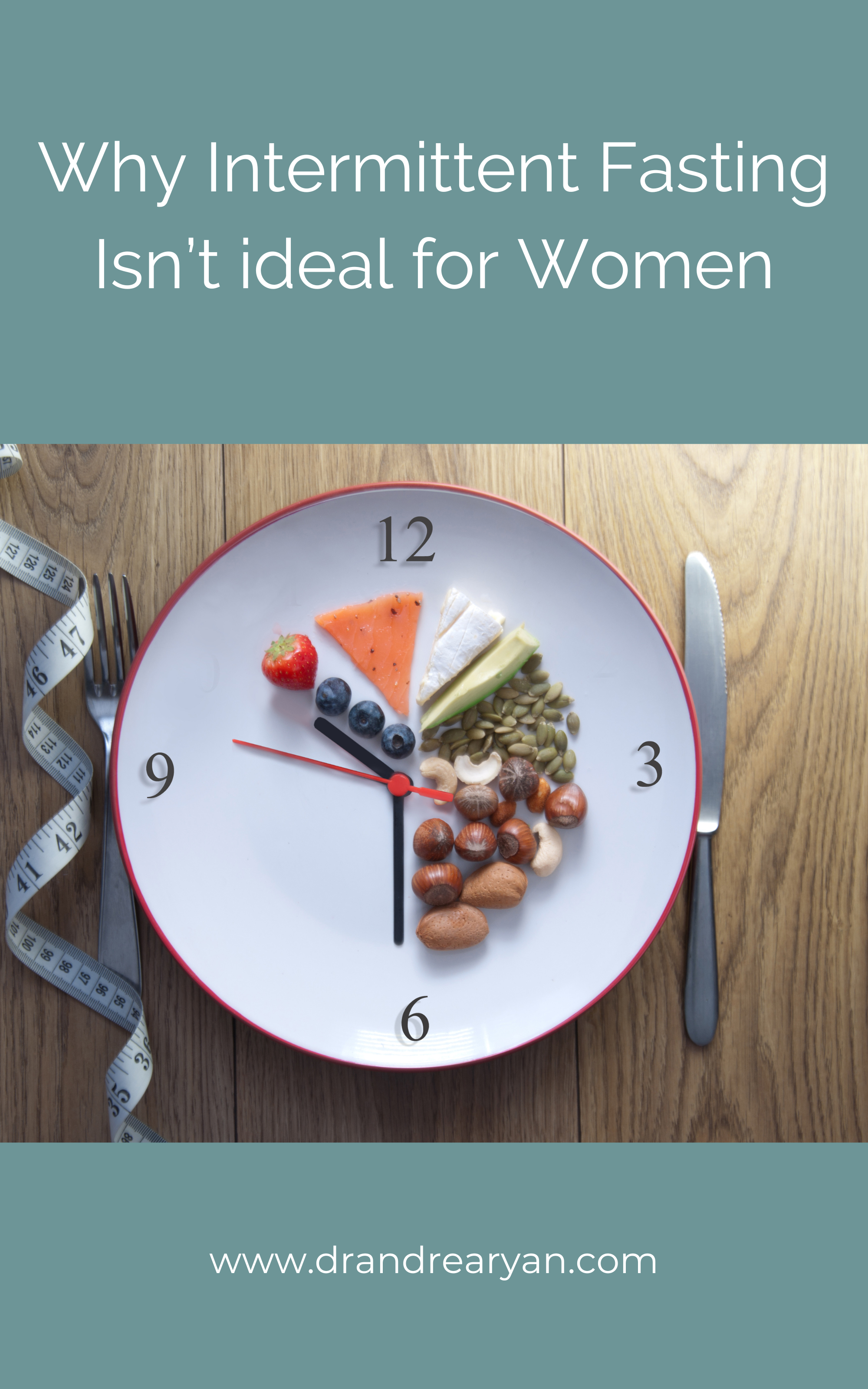Why Intermittent Fasting Isn’t Great for Women
Intermittent fasting is everywhere. It’s promoted as a “miracle” for weight loss, longevity, and better health. But when it comes to women—especially those in their 30s, 40s, and 50s—fasting might be doing more harm than good.
Here’s why women need to approach intermittent fasting with caution.
You Already Fast Every Night—That Counts
Let’s start here: You’re already doing a fast.
If you finish dinner at 7:00 PM and eat breakfast at 7:00 AM, that’s a 12-hour fast. This overnight window allows your body to rest, digest, and reset—without you skipping meals or stressing your system.
The idea that you have to push that fast longer to be healthy just doesn’t hold up, especially for women with active lives, hormonal fluctuations, and increased stress loads.
Women’s Bodies Thrive on Safety and Predictability
Biologically, women’s bodies are wired for reproduction and survival. That doesn’t mean we’re all trying to have babies—but it does mean our bodies are constantly checking in:
Is it safe to ovulate? Is it safe to make hormones? Is it safe to build muscle or burn fat?
When we skip meals or go too long without food, the body often gets the opposite message:
Not safe. Conserve energy. Hold onto fat. Slow things down.
This is especially true in perimenopause, when hormones are already fluctuating and your nervous system is more sensitive to stress.
The Research Doesn’t Reflect Real Life for Most Women
Most of the research on intermittent fasting is done on:
Men
Animals
Or post-menopausal women with pre-existing metabolic conditions
Very few high-quality studies look at healthy women in their reproductive years—or women in perimenopause who are navigating hormonal shifts, caregiving, careers, and high mental loads.
In real life, fasting often leads women to:
Feel anxious or irritable
Have disrupted sleep
Experience hair thinning or low libido
Lose muscle
Overeat later in the day
Struggle with blood sugar crashes
None of that screams “healthy.”
What Your Body Actually Needs
Instead of skipping meals or delaying breakfast, your body benefits from:
Eating within an hour of waking
Protein-rich meals spaced consistently throughout the day
Minimizing blood sugar crashes by combining carbs with either proteins or fats
Supporting your nervous system with food, not stress
You don’t need to fast to feel better. What you do need is nourishment from nutrient-dense foods. And a regulated nervous system that knows it’s safe to let go of the weight, the fatigue, and the symptoms that have been holding you back.
Fasting might sound trendy, but your body isn’t a trend.
It’s a complex, intelligent system that thrives on rhythm—not restriction. And she deserves better than another fad diet.
If you’ve tried fasting and felt worse, there’s a reason.
And there’s another way.
(And if you’re feeling pretty good on it - just wait, as it will come. Maybe not right now but )
It’s time to focus on fuelling your body, not depriving it.
In my 28 Day Nourished Challenge, I walk you through the foundations of nourishing yourself on three key levels: nutrition, movement, and nervous system regulation. All designed to support women who are 40+ (or wanting to ensure they are healthy when they are 40+!).


